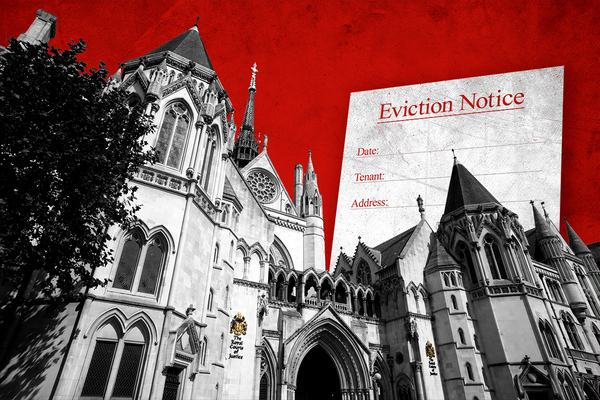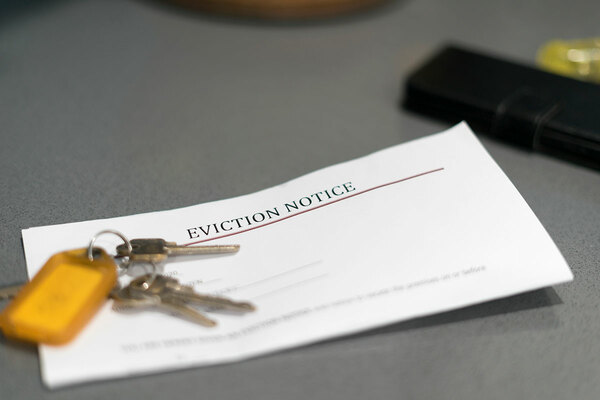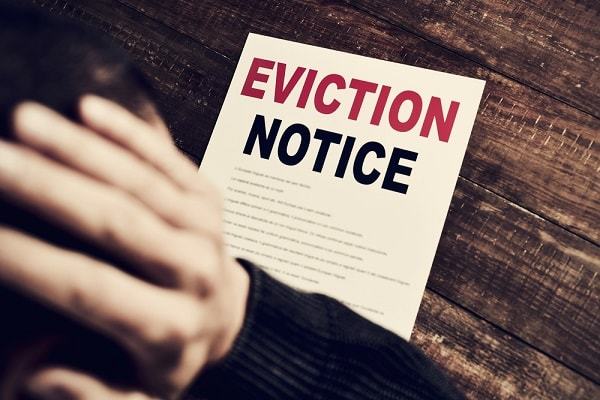You are viewing 1 of your 1 free articles
Housing associations set out possession plans as eviction ban ends
Housing associations have promised to limit evictions when the ban on possession hearings is lifted on Sunday, however data shows they continued to serve notices through lockdown – with one issuing more than 1,600.
A total of 18 of the country’s biggest housing associations in the UK responded to a snap survey carried out by Inside Housing. The majority said they would only look to push forward with evictions where the tenant has not engaged or where there is an issue with anti-social behaviour.
The survey comes ahead of the eviction ban, first introduced in March, being lifted on Sunday.
Under the eviction ban, landlords have still been able to service a notice seeking possession (NSP) to tenants. Once the notice period on these expired, landlords could still file a claim with a court, however the court will not process this claim until after the ban is lifted.
While several associations told Inside Housing they did not serve any NSPs during lockdown, others did.
One housing association that wished to remain anonymous said it had served 1,600 NSPs during lockdown, while another had served 700. Both landlords said the majority of these cases would not result in an eviction as tenants often engage after receiving an NSP.
Three landlords told Inside Housing that they were planning to seriously limit the number of possession claims they issued until the end of October.
It comes as the National Housing Federation published an updated set of coronavirus pledges which included promises not to evict tenants hit by the crisis as long as they engage with their landlord.
Inside Housing’s survey also provided insight into the backlog of cases within the court system. Collectively, respondents had more than 1,000 cases issued before the lockdown stayed.
Data from the Ministry of Justice showed that 3,022 possession claims were filed in England and Wales between April and June, of which 823 were filed by social landlords, 1,317 by private landlords and 882 were unknown.
This is an 87% reduction on the 24,320 cases filed in the first three months of this year.
Neil Lawlor, partner at Devonshires, told Inside Housing that capacity in the courts is going to be a “significant issue” when possession proceedings resume.
Campaigners and politicians have continued to call on the government to extend the eviction ban, including Labour shadow housing secretary Thangam Debbonaire who wrote to the government earlier this week asking it to prevent a “self-made homelessness crisis”.
Additional reporting Dominic Brady and Jack Simpson
Sector responds to the eviction ban ending
James Prestwich, director of policy and external affairs at the Chartered Institute of Housing: “The fall in possession claims is not surprising given that tribunals have not been operating, but the worry is that there could be a big rise in claims starting this month as tribunals resume.
In May, CIH urged the government to extend the ban on evictions until they could safely take place, but we believe that this month is still too soon. If there is a surge in possessions, local authorities could be under huge pressure to prevent homelessness or find temporary accommodation.”
Catherine Ryder, Director of Policy and Research at the National Housing Federation: "Sadly people on low incomes have been disproportionately affected by the coronavirus crisis. Housing associations recognise this and have acted quickly and decisively to support residents struggling financially, putting extra measures in place including setting up charitable funds, helping people claim the benefits they’re entitled to, and retraining extra staff to provide one-to-one support."
"No one should be evicted because of coronavirus and housing associations will continue to act compassionately in the face of the long term impact of the crisis.
"We want to reassure residents that housing associations have pledged not to evict anyone as a result of arrears built up during this crisis as long as residents make contact with their landlord to agree a manageable way to move forward."
Darren Rodwell, Local Government Association housing spokesperson: “We have serious concerns about the potential risk of homelessness some private renters face once the current measures to protect tenants from eviction ends.
“Councils will continue to work closely with tenants who are experiencing financial difficulty, and use discretionary funding to support struggling households as quickly and effectively as possible. We continue to call on government to ensure this discretionary support from councils is funded.
“To give further reassurance and protection to private tenants, the government should bring forward its pledge to end ‘no fault evictions’, which would help reduce the number of people evicted, and ensure that the welfare system supports tenants in financial difficulty. This includes a commitment to maintaining local housing allowance rates at the lowest third of market rents, so that tenants have greater security and households can meet their housing costs.”












